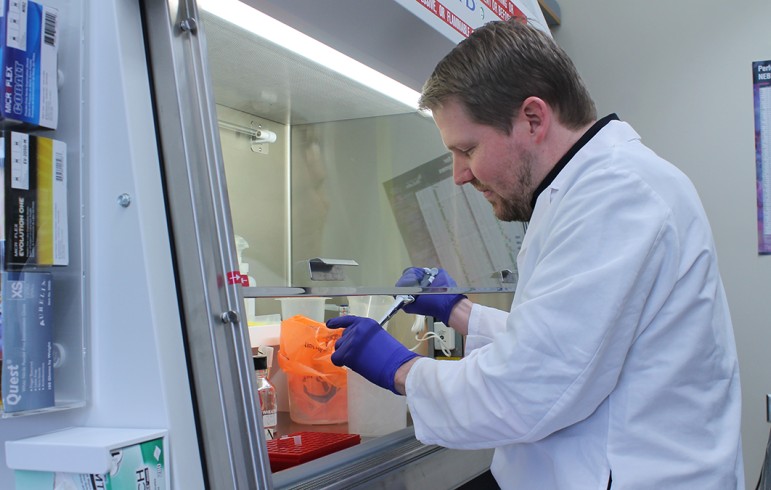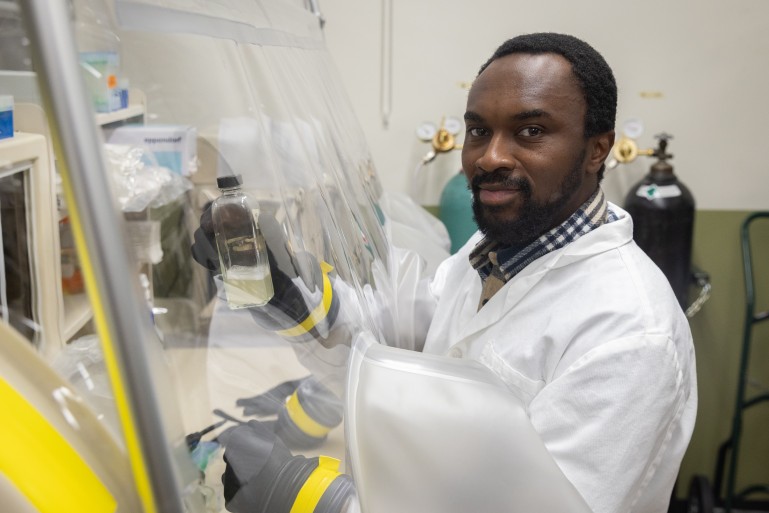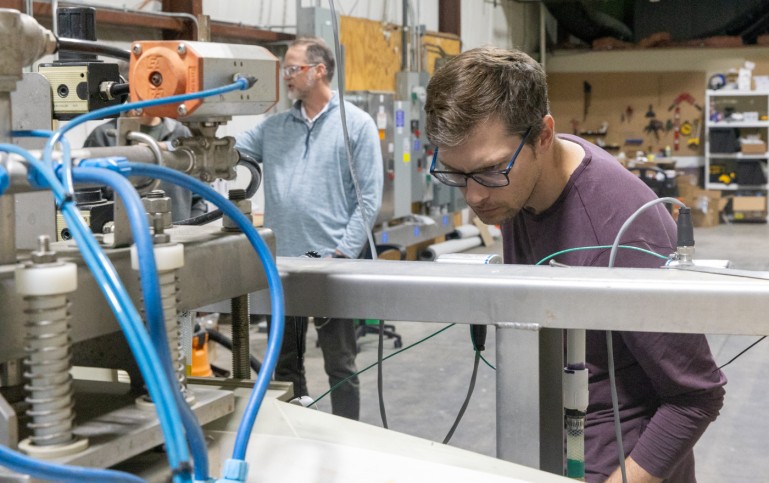In a study published March 9 in Nature Chemistry, University of Wisconsin-Madison chemistry Professor Kyoung-Shin Choi presents a new approach to combine solar energy conversion and biomass conversion, two important research areas for renewable energy.
Scientists at the Great Lakes Bioenergy Research Center (GLBRC) reported today the discovery of a chemical compound called poacic acid that could eventually be used as a fungicide in both sustainable and conventional farming.
A new study published March 2, 2015 in Nature Plants shows that hungry, plant-eating insects may limit the ability of forests to take up elevated levels of carbon dioxide in the atmosphere, reducing their capacity to slow human-driven climate change.
The Great Lakes Bioenergy Research Center (GLBRC), one of three bioenergy research centers established in 2007 by the U.S. Department of Energy (DOE), recently celebrated the filing of its 100th patent application.
To fully realize the potential of harnessing energy from the heat within the earth will require a far more detailed understanding of what’s going on down there than scientists currently have.
Generating enthusiasm for a new kind of technology is key to its long-term success. Rebecca Larson’s research team has already accomplished that goal in Uganda, where students at Lweeza’s Primary School have been known to yell “Biogas!
On February 5, 2015, the National Academy of Engineering (NAE) announced it has named two University of Wisconsin-Madison engineering professors to its 2015 class of new members.



